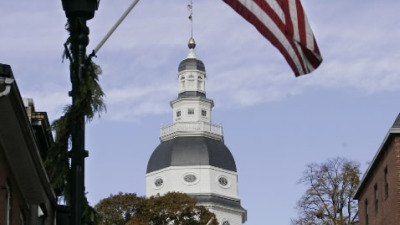J.H. Snider’s Oral Testimony before the
Maryland Senate’s Education, Health, and Environmental Affairs Committee on
SB0449/HB0183, The Equitable Access to Records Act
February 23, 2021
My name is J.H. Snider. Over the past three decades, I’ve published many op-eds and scholarly articles relating to open government, including as a fellow at the Harvard Kennedy School’s Shorenstein Center on Media, Politics and Public Policy. Locally, I’ve published in the Washington Post, Baltimore Sun, and Capital.
As for the bill under discussion, I wholeheartedly endorse its stated purpose. Who, after all, isn’t for open government? But I believe the enforcement model it doubles down on is both ineffective and counterproductive. In practice, it will foster more government secrecy—the exact opposite of its stated purpose.
The crux of the matter is that the enforcement entities it relies upon have already been substantially captured by the entities they are supposed to hold accountable. Regulatory capture is a well-known problem, the subject of countless tomes published by political scientists. This bill, in its many devilish details, will aggravate that problem.
As an illustration of just one of the dozens of ways this bill accomplishes that feat, MACo and MML are granted explicit control of one of the seats on the newly empowered Compliance Board. But despite their nominal championship of open government, they have functioned as inveterate, behind-the-scenes opponents of open government. If ever there was a case of the fox being placed in charge of the chicken coop, this is it.
The new, sweeping, and vague exemption allowing agencies and the Compliance Board to dismiss complaints that are quote/unquote “frivolous, vexatious, or in bad faith” will be abused and allow for a dramatic weakening of the current Public Information Act, especially where it’s most needed. The new reporting requirements will, unfortunately, further incentivize the enforcement entities, especially the ombudsman, to engage in smoke and mirrors enforcement.
If you really want to foster public access to public documents, I’d suggest three reforms widely endorsed by journalism advocates. First, place public documents online so the public need not rely on the slow and loophole ridden PIA process. The way this bill claims to do this is mere hot air.
Second, as is already done in some dozen states but not Maryland, require local governments to pay litigation costs when they lose an open government case.
Third, reduce the extensive use in Maryland of what the Society of Professional Journalists calls “censorship by PIO,” which has made a mockery of the PIA. Censorship-by-public-information-officer is when an agency gags its expert employees in their communications with journalists, including citizen journalists. In Maryland, it has been used to profoundly weaken the PIA.
#
Note: Snider was not selected to give testimony on either of these House bills, so the following is only Snider’s planned, not actual, testimony. He faced two obstacles in signing up to testify on these bills: the difficult to use post-Covid-19 witness sign-up interface, and the random lottery used to select among those who signed up.
J.H. Snider’s Oral Testimony before the
Maryland General Assembly’s Health and Government Operations Committee on
HB0344/SB0072, The Maryland Transparency Act of 2021
February 10, 2021
My name is J.H. Snider. Over the past three decades, I’ve published many op-eds, trade publication columns, and scholarly articles relating to open government, including as a fellow at the Harvard Kennedy School’s Shorenstein Center on Media, Politics and Public Policy. In local media, that includes the Washington Post, Baltimore Sun, and Capital.
I’ll will be testifying today on two so-called open government bills. One I support; the other I oppose. This testimony is for HB0344, The Maryland Transparency Act of 2021.
I support this bill because it addresses a serious open government problem in what I think will be a reasonably effective way. The part of the bill that most appeals to me is making public reports meaningfully public for those who participate at open meetings to discuss, approve, and, in some cases, report on those meetings. When I go to a public meeting and am not allowed to see the main public documents up for approval, I consider that a mockery of the Open Meetings Act purported commitment to public participation at Open Meetings. To be sure, many public documents are made available to the public before they are discussed and/or approved at open meetings. But too often potentially controversial ones are purposefully not made available until after a meeting when their practical and news value is greatly reduced or even totally irrelevant.
#
Hearing Videos
February 2, 2021–Senate Hearing, Maryland Transparency Act of 2021
Bill discussion starts at 1:04.
February 11, 2021, House Hearing, Maryland Transparency Act of 2021 and Equitable Access to Records Act
Maryland Transparency Act of 2021 bill discussion runs from 31:50 to 44:45.
Equitable Access to Records Act bill discussion runs from 52:00 to 1:37:45.
February 23, 2021–Senate Hearing, The Equitable Access to Records Act
Bill discussion runs from 0:00 to 30:55. Snider testimony runs from 28:00 to 30:55.

